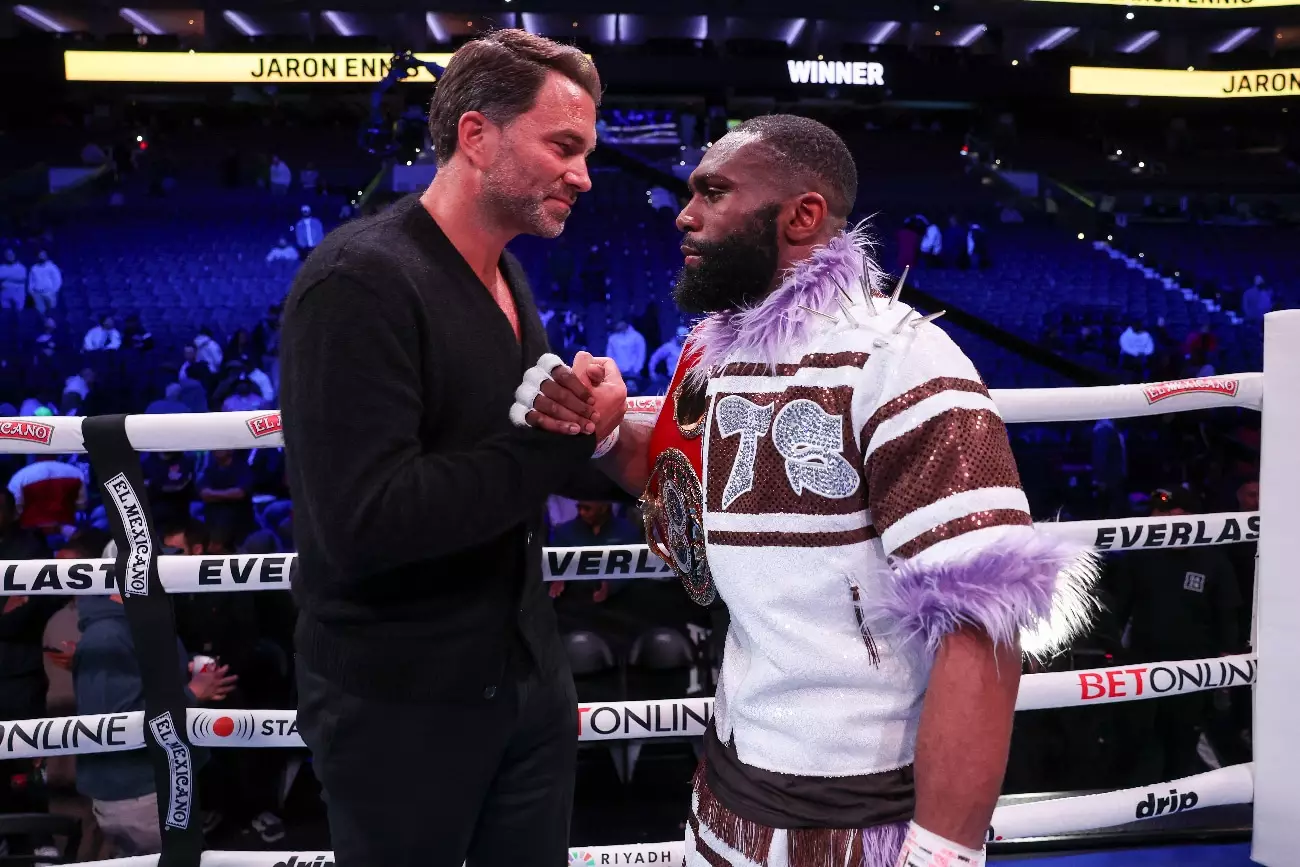The world of professional boxing is often punctuated by dramatic decisions, unexpected fights, and varying levels of fanfare. Recently, Oscar De La Hoya, a prominent figure in boxing and the CEO of Golden Boy Promotions, took to social media to discuss the potential match-up between two rising stars: Jaron ‘Boots’ Ennis and Vergil Ortiz Jr. This topic is particularly relevant given the shifting dynamics and controversies that often accompany fighter promotions. The proposed bout against Ortiz, who boasts an impressive record of 22 wins, 21 of which are knockouts, poses a significant challenge for Ennis, who remains undefeated at 33-0 but showed weaknesses in his recent performance.
De La Hoya’s Concerns
De La Hoya’s critique centers on the apparent vulnerability exhibited by Ennis during his recent fight against Karen Chukhadzhian. In a remarkably competitive match on November 9, the IBF welterweight champion struggled, exposing gaps in his defense that left some questioning his readiness to face Ortiz. De La Hoya labeled Ennis’s performance as amateurish, highlighting the risks that come with prematurely matching him against someone of Ortiz’s caliber. The crux of De La Hoya’s argument is not merely about win-loss records but rather about the intricacies of skill sets that can fundamentally shape the outcome of high-stakes fights.
The decision by Eddie Hearn, a well-known promoter and the head of Matchroom Boxing, to reconsider the fight against Ortiz can be interpreted as a strategic retreat rather than a mere change of heart. After observing Ennis’s struggles, Hearn’s caution seems prudent. De La Hoya has publicly challenged Hearn not to shy away from agreements made prior to the bout between Ennis and Chukhadzhian. This public confrontation reflects a deeper understanding of boxing’s volatile nature; acknowledging a fighter’s vulnerabilities and ensuring they do not enter a fight that could potentially endanger their careers is paramount.
There is also an underlying subtext about the importance of weight class dynamics in boxing, particularly in the welterweight division where Ennis currently fights. De La Hoya implies that Hearn would be better off keeping Ennis in a more comfortable realm, where he can maintain dominance against less formidable opponents. This contrasts starkly with the idea of pitting him against Ortiz, where the risks of serious loss are significant. Maintaining a winning record, regardless of the level of competition, often defines a fighter’s marketability and future earning potential—a critical factor in boxing that’s often overlooked.
This situation highlights a broader dilemma in professional boxing: the balance between risk and opportunity. Fighters like Ennis are at a career crossroads where decisions made by promoters can shape their legacies. As De La Hoya succinctly puts it, to back down now would be to undermine their professional commitments and insights into the fighter’s potential. Moving forward, it remains to be seen if Hearn will follow through with matching Ennis and Ortiz, but the intricacies surrounding this decision will undoubtedly echo throughout the boxing world, reminding us all of the stakes involved in forging an undefeated career.


Leave a Reply